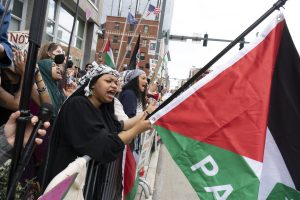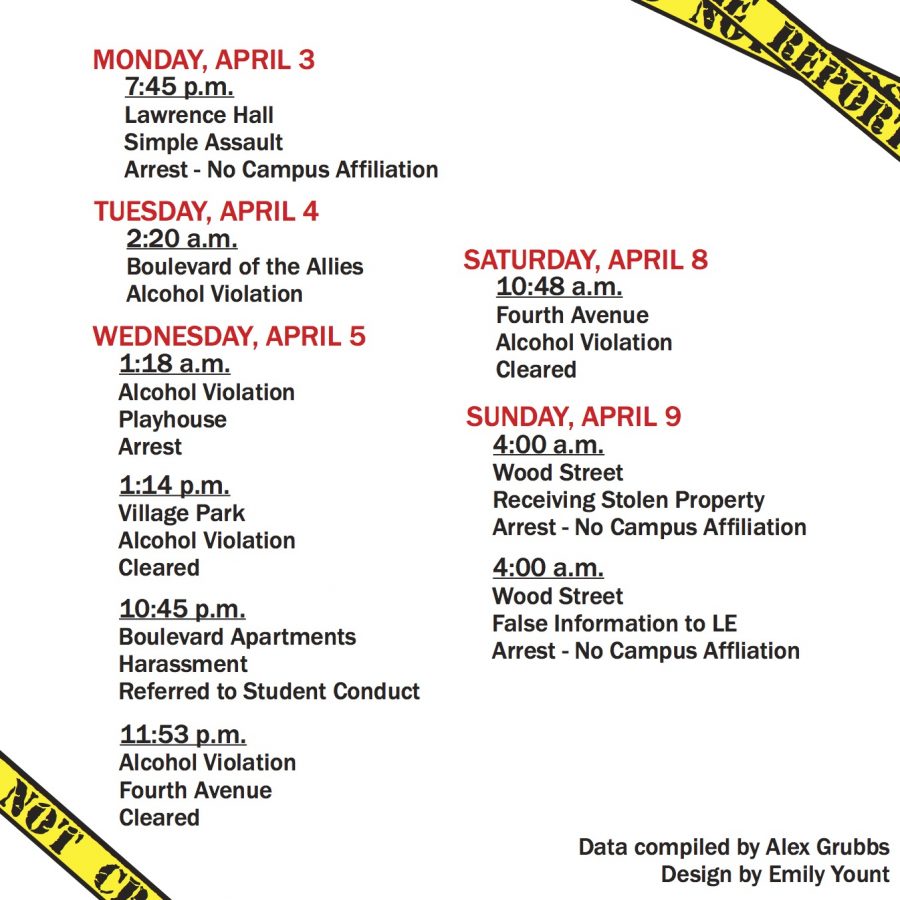The lobby was packed with hundreds of people from around the world dressed in colorful attire: Indians, Americans and Pakistanis. The aroma of Indian food permeated the room. Carnegie Mellon University and Mayur-SASA presented Pittsburgh’s fourth annual Bhangra in the Burgh on Nov. 6. The Soldiers and Sailors Memorial Hall auditorium held its full capacity of 2,300 people to see Bhangra teams from around the nation compete for the title during a night of dance, music and cultural celebration. Bhangra is a type of energetic folk dance which originated in Pakistan and India. The dance is usually performed while celebrating an annual harvest. Bhangra in the Burgh (B.I.B.) combines the folk dance with modern-day Western hip-hop and reggae. The dance has become so popular that there are more than 65 collegiate Bhangra teams in the United States. B.I.B. was deemed the largest student-run event at Carnegie Mellon. The B.I.B.Executive Committee included 160 student-staff members. The committee and Mayur-SASA, a South Asian student organization dedicated to promoting unity, diversity and interest in the South Asian culture, worked together to plan B.I.B. 4. B.I.B. agreed with Suraj Baxi, the master of ceremonies, breaking the cultural barriers in the room with jokes about American and Indian stereotypes. After connecting with the crowd, Baxi introduced the first Bhangra team from Drexel University. A short video introduced the team and soon after, strobe lights turned on a mix of traditional Indian lyrics sounded over a modern dubstep beat with enough bass to shake the floor. The team went from a stand-still abstract figure to an energetic, colorful presentation of two cultures. Bajmi Das, a 2009 Carnegie Mellon graduate, was a competitor in her fourth B.I.B. on the only all-female team called DCBC; an acronym for the Washington, D.C.’s metropolitan area bhangra crew. “I thought it was amazing. They sell out every year,” Das said. “It advertises itself. I think they stepped it up again from a team perspective because it was very, very well decorated and well thought out.” The teams were from North Carolina, New Jersey, Pennsylvania, Virginia and Florida. They came wearing vibrantly colored traditional attire which originates in Punjab, India. The outfit above the waist consists of a turla, which is the fanlike fabric on the top of the turban, the pag, which is the turban itself and a sign of pride and honor in Punjab, and a kaintha, which is the traditional necklace. The lower half of the outfit is put together with a kurta, which is similar to a skirt, a chadar, a loose loincloth around the dancer’s waist and the entire outfit is completed with a waistcoat called a jugi. In between the bhangra teams, various exhibition acts were performed. There were two a capella groups who sang popular hip-hop songs like “Airplanes” by B.O.B. and featuring Hayley Williams, a comic skit about the hassles of college life and three non-Bhangra dance performances. Rahul Goel, a student at Washington University (WU) competed on the team called “First Class Bhangra.” “This was the one stage that I wanted to dance on since I started dancing,” Goel said. “Now that I’ve made it here, that’s all I care about.” Goel’s parents came to Pittsburgh from Punjab in 1986. Goel grew up speaking both English and Arabic, and although he lived in the United States, he enthusiastically worked to embrace his roots. “I just like to represent my culture, and this is the best way I can,” Goel said. Goel followed in the footsteps of the previous bhangra teams at WU and when his time came to be part of that team, the experience had him tongue-tied. “To be on that stage and hear everyone cheering is just amazing,” Goel said. “To be from Pittsburgh and to know this is your crowd, it’s just amazing that this many people come out. There’s no way to explain it.” The judges consisted of Atinder Cloty, Baljit Toor, Govind Rangrass, Saleem Malkana and Dr. Teginder Singh Dhanoa, all of whom have been engaged in the Bhangra Community for years. The judges based their decision on choreography, traditionality, execution, creativity and an extra points category for “flirting” with the audience.
April 19‘Burgh Bites: Subway








